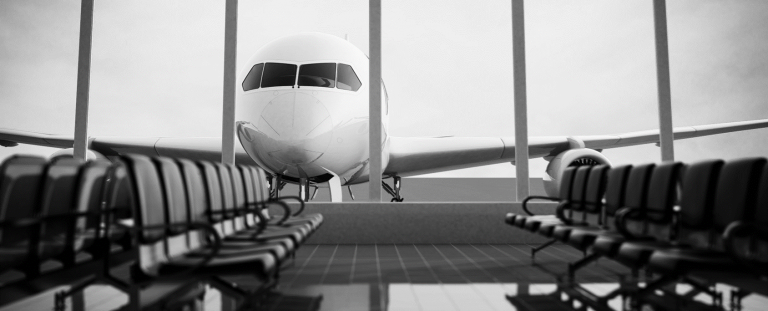We
have to admit it: the world has changed a lot! In 2017 we are living in
a technologically advanced society like none that has ever existed
before. Now, you can complete tasks in a fraction of the time it used to
take; like ordering your dinner via a food app or booking
an appointment with your doctor right from your iPhone. The presence of
technology can be felt everywhere, and its influence is continuing to
grow each day.
The
airline industry is experiencing this transformation first hand! Modern
airlines are adopting the digital revolution in an effort to win over
customers. This translates into a better travel experience for air
passengers across the globe, but what will airlines roll out in the near
future? Let’s take a look at the most influential airline technology
trends that will have significant impacts in 2017.
Internet of Things (IoT)
According to Gartner, there will be 25 billion connected devices by 2020.
The Internet of Things (IoT) is the concept of connecting all physical
objects via a network. This concept is already helping the aviation
industry as modern airlines are using IoT to offer the best customer
service possible and to make their flights more efficient, safe, and
enjoyable for the passengers.
So,
it’s no surprise that IoT will generate many benefits for airlines in
2017. There are a number of examples of this concept’s success already. A
great example being VietJet implementing the first airport check-in kiosks in Vietnam, simplifying the lives of their airline passengers.
Automation in the Aviation Industry
Automation
has allowed airlines across the globe the chance to optimize their
services. For air passengers, automation means a faster, more convenient
travel experience with minimized tedious manual processes.
There
are many areas of the aviation industry that can be streamlined with
automation. However, the most important of them include: passenger
reservation, ticket processing, cargo management, and in-flight services.
Automation is already occupying a large space in the airline industry and it will only be increased in 2017. For instance, ameliaRES Airline Passenger Reservation system has enabled Vieques Air Link (VAL),
to make everything ticketless and passengers only need their
confirmation or any type of ID at the time of check-in. Within 45 days
of the ameliaRES implementation, 20% of VAL’s reservations were made
through the web.
Virtual Reality (VR)
Virtual
Reality (VR) is another important technology that is going to make
travelling more fun in 2017. This can be considered as another important
avenue for airlines to collect data on customers. It also gives
airlines a competitive edge when crafting offers.
Australian
airline Qantas has already taken a lead on this concept. Qantas has
recently started to offer e-devices to their passengers on the flights
and passengers can be entirely busy in enjoying games, movies, and more –
all from 40,000 feet up in the air. The success of Virtual Reality with
Qantas means other airlines are certain to follow the same in 2017.
Big Data
With Big Data
technology, modern airlines can accomplish loads of activities. With
Big Data, tasks such as sending tailor made offers to customers in
real-time becomes easier (just by keeping track of details such as the
customer’s purchase history, travel itineraries, search tendencies
etc.). Big Data can also help airlines to detect the most efficient
flight path that is less time consuming, safe, and saves on
fuel! American carrier United Airlines is a great example of an airline
that has already successfully implemented Big Data for individual
customers.
It’s
really amazing that technology has taken the lead for everything in the
sky. It’s not crazy to think that technology is going to control every
aspects of commercial space transportation in the coming years.
Stay
tuned, since the airline industry is only going to get better in 2017
as technology continues to rapidly improve and advance!
If you liked this blog, you might be interested in reading: Big Data and The Travel Industry The Top 10 Aviation Technology Innovations in 2016 or Top Airline Trends to Expect in the Future





